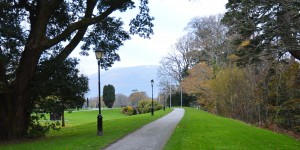One of my favourite Mark Twain quotes is:
“The older I get, the more clearly I remember things that never happened.”
What brings this to mind is an interesting OpEd piece in today’s New York Times
NEIL DEGRASSE TYSON, the astrophysicist and host of the TV series “Cosmos,” regularly speaks to audiences on topics ranging from cosmology to climate change to the appalling state of science literacy in America. One of his staple stories hinges on a line from President George W. Bush’s speech to Congress after the 9/11 terrorist attacks. In a 2008 talk, for example, Dr. Tyson said that in order “to distinguish we from they” — meaning to divide Judeo-Christian Americans from fundamentalist Muslims — Mr. Bush uttered the words “Our God is the God who named the stars.”
Turns out that Mr Tyson’s memory was faulty.
In his post-9/11 speech, Mr. Bush actually said, “The enemy of America is not our many Muslim friends,” and he said nothing about the stars. Mr. Bush had indeed once said something like what Dr. Tyson remembered; in 2003 Mr. Bush said, in tribute to the astronauts lost in the Columbia space shuttle explosion, that “the same creator who names the stars also knows the names of the seven souls we mourn today.” Critics pointed these facts out; some accused Dr. Tyson of lying and argued that the episode should call into question his reliability as a scientist and a public advocate.
When he was first asked for the source of Mr. Bush’s quotation, Dr. Tyson insisted, “I have explicit memory of those words being spoken by the president. I reacted on the spot, making note for possible later reference in my public discourse. Odd that nobody seems to be able to find the quote anywhere.” He then added, “One of our mantras in science is that the absence of evidence is not the same as evidence of absence.”
But there’s another twist to this tale.
Years before he misremembered what Mr. Bush said about 9/11, Mr. Bush himself misremembered what he had seen on 9/11. As the memory researcher Daniel Greenberg documented, on more than one occasion Mr. Bush recollected having seen the first plane hit the north tower of the World Trade Center before he entered a classroom in Florida.
In reality, he had been told that a plane had hit the building, but had not seen it — there was no live footage of the plane hitting the tower. Mr. Bush must have combined information he acquired later with the traces left by his actual experience to produce a new version of events, just as Dr. Tyson did. And just as Dr. Tyson’s detractors assumed that he had deliberately lied, some Bush critics concluded that he was inadvertently leaking the truth, and must have known about the attacks in advance.
Mark Twain was right.

